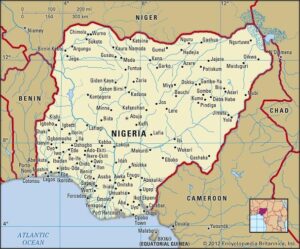Atlas Petroleum International has announced the resumption of its activities which includes well interventions on OML 109 in Nigeria. This is to resume full production from the Ejulebe marginal field.
The company was awarded the marginal field 29 years ago and the block entered into active production through the development of the Ejubele discovery in September 1998. The current license can be extended beyond its initial 20-year period set to expire next year to 2026 and beyond.
The OML 109 is a low-cost operating environment as it is a shallow offshore field. Located in the Niger Delta region of Nigeria, it comprises of 14 identified and mapped prospects and leads, and resource potential of over 500 million barrels of oil. It covers an area of 773 square kilometres with a water depth of 15-75 meters.
It is one of the most attractive blocks in the Niger Delta because of its significant untapped and yet-to-be explored hydrocarbons. It lies alongside legacy oil producers such as Okan, Meji, Delta and Delta South and it is close to the Escravos Terminal, an existing oil and gas infrastructure.
In a statement distributed by APO Group on behalf of Atlas petroleum international, the Executive Chairman of Atlas Oranto, Prince Arthur Eze, said “The renewed development of OML109 will bring a boost to local content development in Nigeria, and support the industry’s recovery following the COVID-19 crisis. As Nigeria multiplies efforts to build domestic capacity and develop the Nigerian content, we intend to live up to expectations as one of the country’s major indigenous player.”
“We expect the ongoing wells interventions on OML 109 to deliver quick wins on the recovery and enhancement of production from the field, and express our thanks to the Department of Petroleum Resources for facilitating all permits.”
Atlas Petroleum International and Pranto Petroleum currently have a massive presence across the African continent. They boost of 22 oil and gas licenses in 12 jurisdictions.
